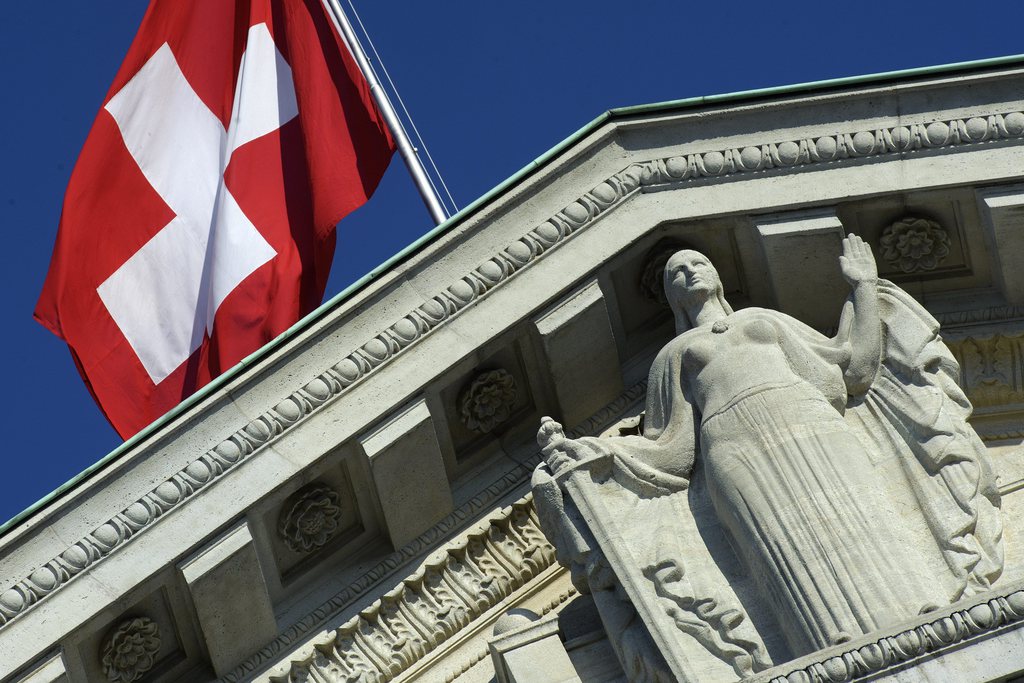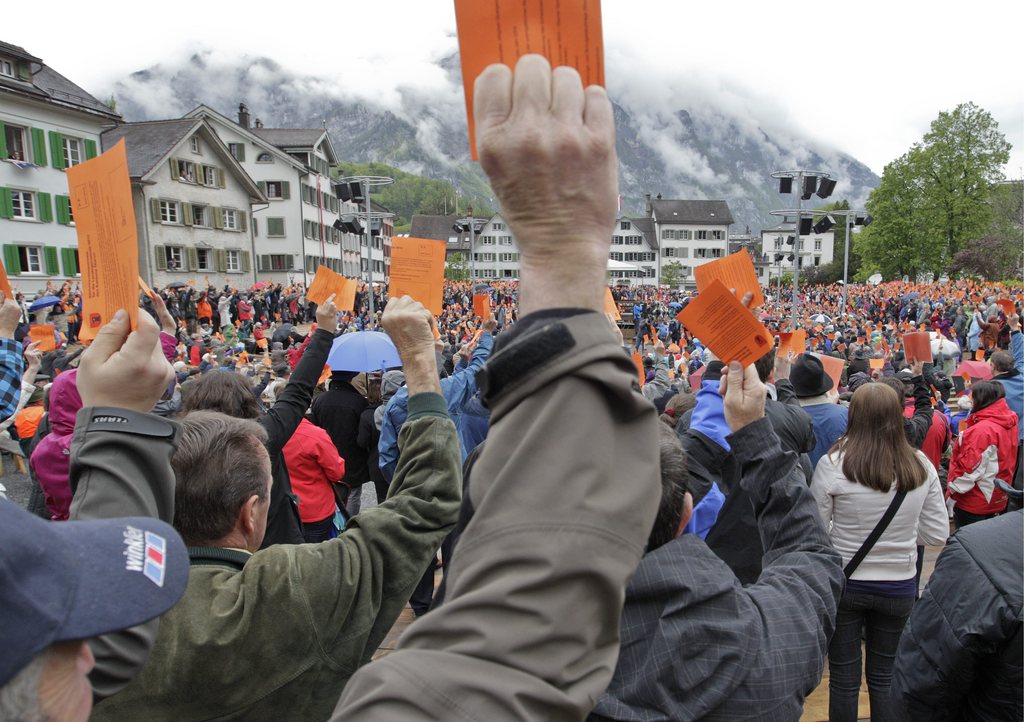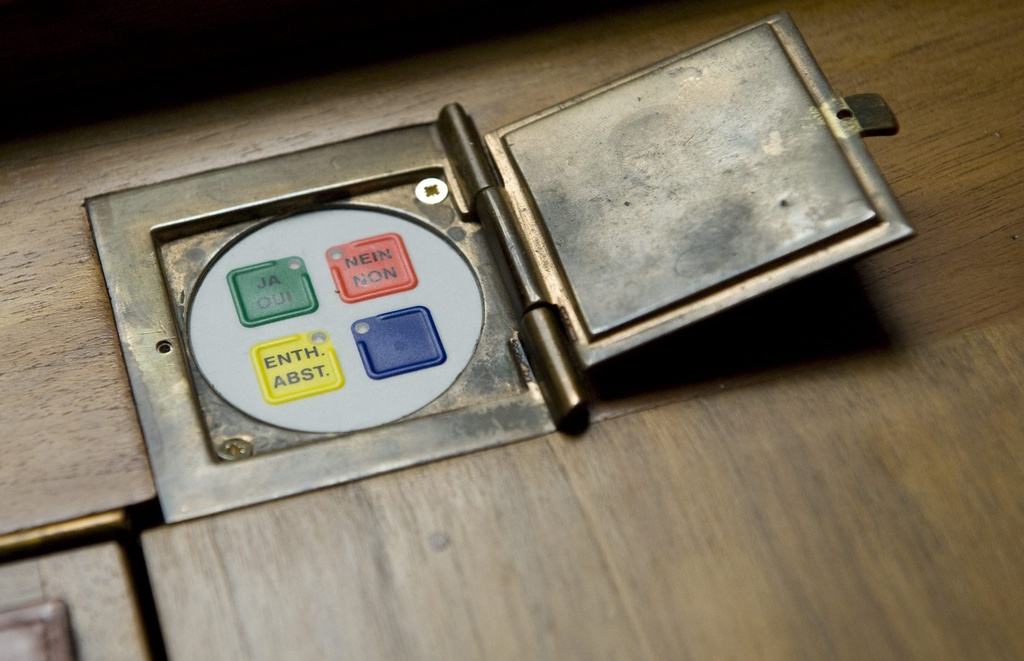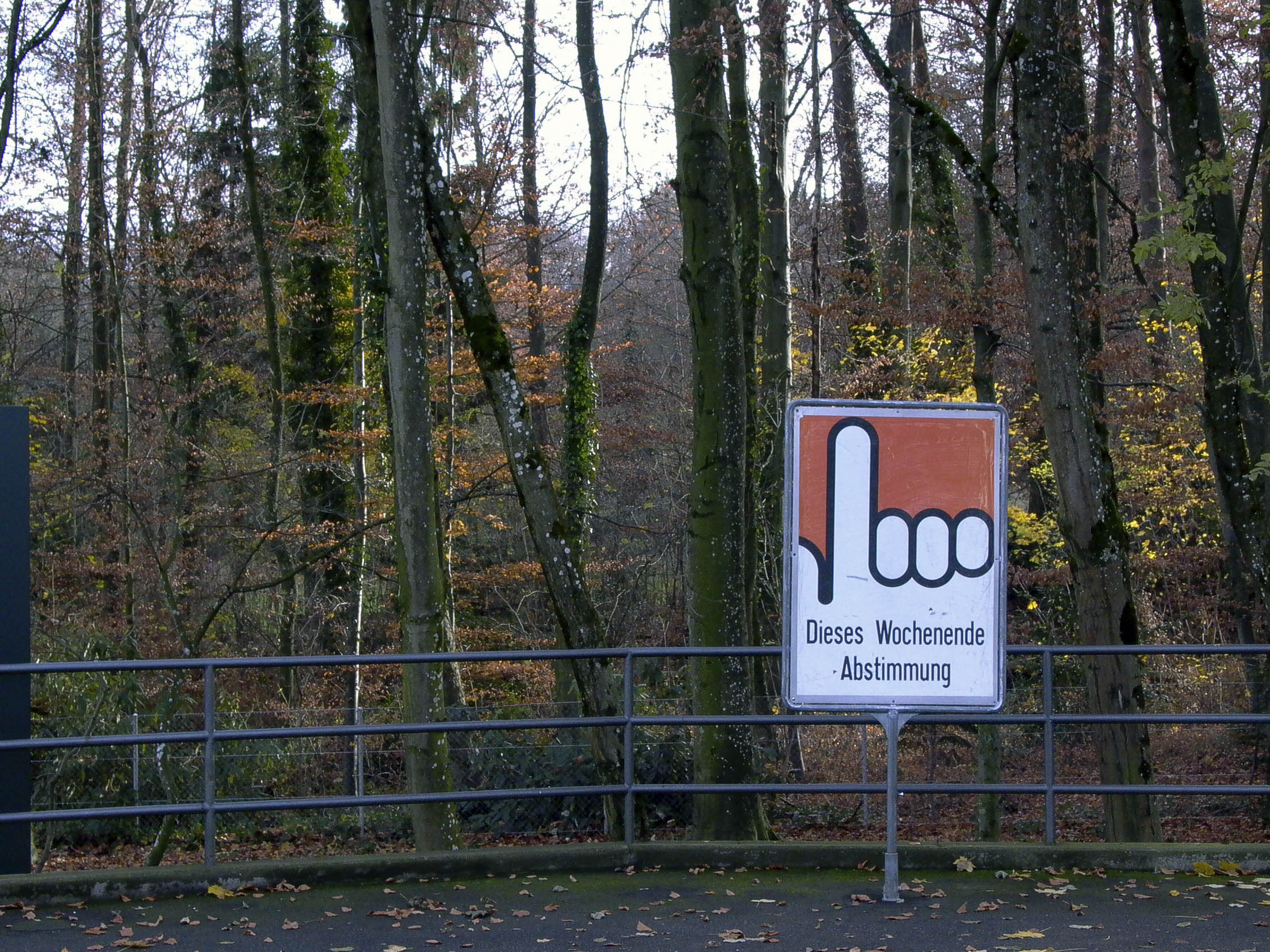Parliament nixes court oversight for legislation

The House of Representatives has buried a project calling for Switzerland’s highest court to rule on the constitutionality of federal laws, with parliamentarians defending the country’s tradition of direct democracy over more power for judges.
Since 1874, the Swiss constitution does not allow the Federal Court to block the application of national legislation, based on the premise that voters have approved laws passed by parliament, either at the ballot box via a referendum or tacitly.
The supreme court can however check the constitutionality of cantonal legislations and rule if federal laws are in conformity with the European Convention on Human Rights.
The two parliamentary initiatives that were rejected on Monday wanted judges to be able to rule on national legislation as well, but only if a decision based on one or more of these laws was subject to an appeal.
The proposal did not call for the creation of a constitutional court and any decision reached by the judges would not have entailed the repeal of legislation, but only blocked its application. Parliament would have then been forced to review the law that had been ruled unconstitutional.
Turnaround
The House vote was a turnaround after a small majority accepted the initiative a year ago. But after the Senate turned down the proposal in June, more parliamentarians found it simpler to stick with the status quo this time around.
While admitting the current situation was far from satisfactory, many considered the proposed solution worse, notably because a small group of judges could overturn legislation prepared by parliament and accepted by voters according to the centre-right Christian Democrat Karl Vogler.
Others argued that the constitutionality of legislation was already vetted by the government and parliament before it was accepted. Voting in favour of the change would also upset the balance of power and undermine direct democracy warned Luzi Stamm of the rightwing Swiss People’s Party.
Swiss Justice Minister Simonetta Sommaruga spoke in favour of the proposal, saying that it would reinforce the rule of law.
For the Green Party’s Alec von Graffenried, the constitution is the highest law in the land, worthy of extra protection against any violation, adding that cantons were already operating under similar rules without direct democracy suffering in any way.
Speaking for the parliamentary commission that approved the proposal, the centre-left Social Democrat Carlo Sommaruga said there was no reason to fear the court would be used to dismantle social measures or substitute itself for parliament.
He added that unlike in the United States with its Supreme Court, the initiatives would not allow for direct appeals against a law’s constitutionality, but only against a decision based on the legislation.

More
Direct democracy

In compliance with the JTI standards
More: SWI swissinfo.ch certified by the Journalism Trust Initiative




You can find an overview of ongoing debates with our journalists here. Please join us!
If you want to start a conversation about a topic raised in this article or want to report factual errors, email us at english@swissinfo.ch.